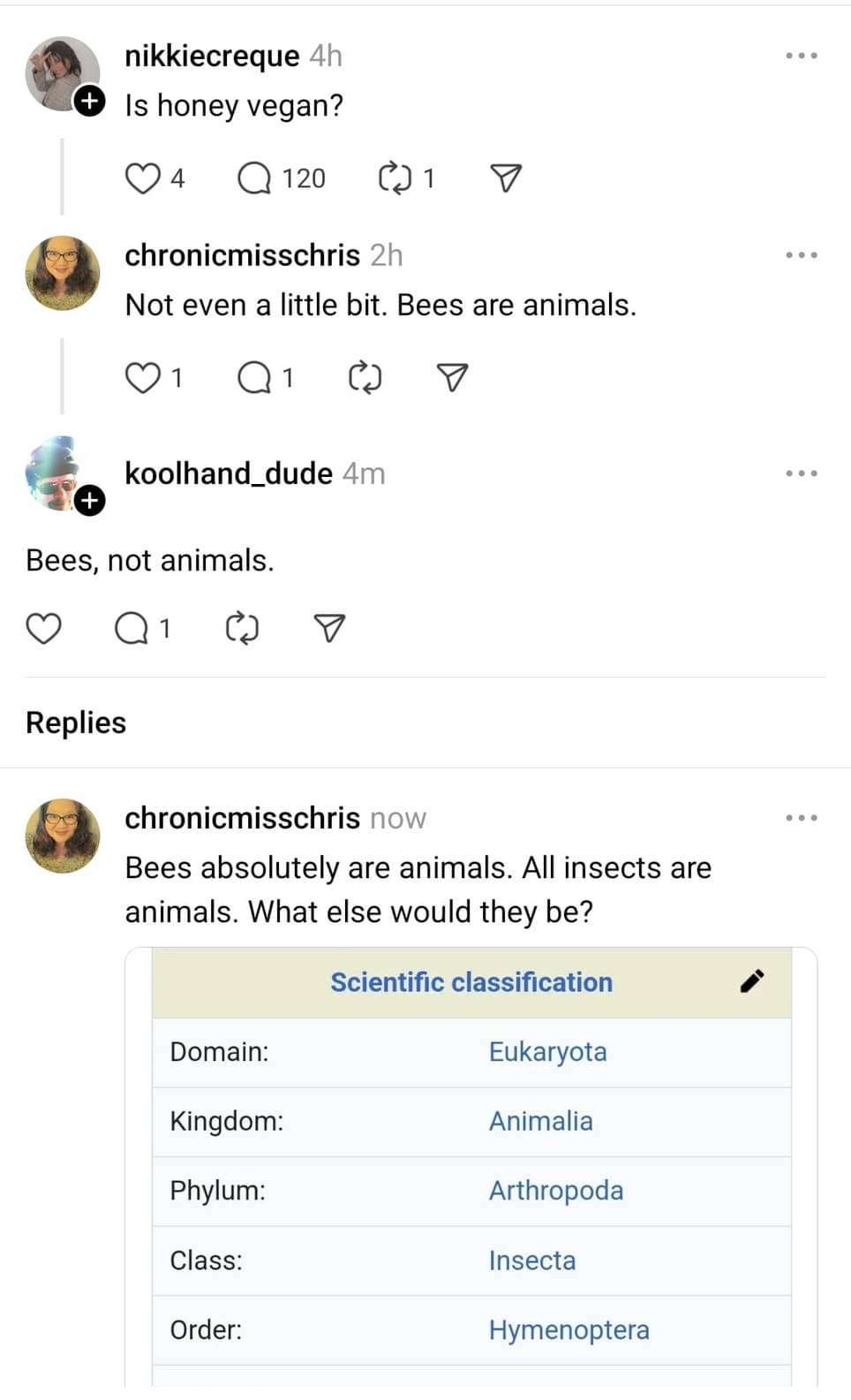this post was submitted on 19 Oct 2024
710 points (97.8% liked)
Science Memes
11004 readers
3140 users here now
Welcome to c/science_memes @ Mander.xyz!
A place for majestic STEMLORD peacocking, as well as memes about the realities of working in a lab.

Rules
- Don't throw mud. Behave like an intellectual and remember the human.
- Keep it rooted (on topic).
- No spam.
- Infographics welcome, get schooled.
This is a science community. We use the Dawkins definition of meme.
Research Committee
Other Mander Communities
Science and Research
Biology and Life Sciences
- [email protected]
- [email protected]
- [email protected]
- [email protected]
- [email protected]
- [email protected]
- [email protected]
- [email protected]
- [email protected]
- [email protected]
- [email protected]
- [email protected]
- [email protected]
- [email protected]
- [email protected]
- [email protected]
- [email protected]
- [email protected]
- [email protected]
- [email protected]
- [email protected]
- [email protected]
- [email protected]
- [email protected]
- !reptiles and [email protected]
Physical Sciences
- [email protected]
- [email protected]
- [email protected]
- [email protected]
- [email protected]
- [email protected]
- [email protected]
- [email protected]
- [email protected]
Humanities and Social Sciences
Practical and Applied Sciences
- !exercise-and [email protected]
- [email protected]
- !self [email protected]
- [email protected]
- [email protected]
- [email protected]
Memes
Miscellaneous
founded 2 years ago
MODERATORS
you are viewing a single comment's thread
view the rest of the comments
view the rest of the comments

I feel like bees are a bit of a grey area. We're not eating them, we're kind of like landlords that give them a nice place to stay and they pay rent in honey. I'm not vegan so I'm not quite sure what the rationale is for bee stuff.
I find vegan intellect fascinating. I love hearing their responses to my epistomology. They all make it up as they go along. It's very similar to religious beliefs in the way it is personal. Each has their own set beliefs on where to draw the line of what is vegan and what is not.
My personal understanding of the world is that plants aren't so different from animals that they can be classified separately from other food sources. For example, how much different is r-selected reproduction from a fruiting plant. Plants react differently to different colors of light and so do we.
It helps to understand the goal of a vegan. The extent to which we are tied to every living thing on Earth means that many vegans have set impossible goals.
Just fascinating.
ethical vegans (and not people who eat plant-based for nutritional reasons, and often get conflated with people doing it for ethics reasons) generally agree on one very simple rule:
To reduce, as much as possible, the suffering inflicted upon animals.
That's it.
Where that line is drawn of course depends on your personal circumstances. Some people require life-saving medicine that includes animal products, and are generally still considered vegan.
I'd like to see what about this confuses you and your epistomology [sic, and that word doesn't mean what you think it means]
I am not confused. I am curious and fascinated on how people come to their conclusions. I know exactly what epistomology means. I have used it for conversations with many vegans about their choices as well as on other personally held beliefs. I could be a lot better at it but it has helped me show that I am curious and respectful.
I'm curious, how do you use a branch of philosophy, that's concerned with the abstract theory of knowledge and the limits of human reasoning, in conversations?
it's epistemology, btw
Thank you for the correction. It can be applied in the Socratic method. I ask questions to understand someone's position and continue into how they came to those conclusions. At no point do I pressure for answers though. The idea is just to keep the person talking so you can understand their poimt of view to the best of your ability. It has a side effect of healthy personal reflection for all parties involved.
Alright, fair enough. The Socratic method I know and can respect. I still wouldn't call it epistemology, but at least I know what you mean now c: